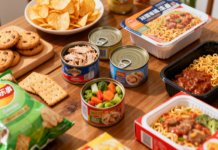Many people have come to accept generic drugs as a way to save on costs when their insurance won’t cover name brands. It seems like a reasonable alternative, but a whistleblower case a while back called into question whether the booming use of generics can be properly regulated by the Food and Drug Administration.
Generic drug maker Ranbaxy plead guilty to federal drug safety violations and paid up to $500 million in fines to settle claims that it sold sub-par drugs and made false statements to the FDA about its two manufacturing plants in India. The United States contends that Ranbaxy manufactured, distributed, and sold drugs whose strength, purity, or quality differed from the drug’s specifications or that were not manufactured according to the FDA-approved formulation. The Justice Department said it was the largest drug safety settlement at the time with a generic drug manufacturer.
Many generic Drugs are made overseas
The global market for generics is estimated to be $242+ billion and growing. Fortune Magazine examined the dark side of the generics boom in an article back in 2013. In Dirty Medicine, Fortune reports more than 80% of active pharmaceutical ingredients for all U.S. drugs now come from overseas, as do 40% of finished pills and capsules.
When you consider just how much of America’s generic drug supply comes from factories outside of the U.S., the Ranbaxy case is cause for concern. It puts the FDA in a difficult position when it comes to policing facilities that produce the generic drugs Americans are increasingly ingesting.
Fortune reports, as our dependence on generic drugs from overseas has grown, so have questions about their oversight and safety. A report by the Government Accountability Office found that in 2009, regulators inspected only 11% of foreign drug manufacturing plants, while they inspected 40% of domestic ones.
Here is an excerpt of the Fortune report:
Fortune’s investigation yields the first comprehensive picture of how one under-policed and far-flung generics company operated. It is not a tale of cutting corners or lax manufacturing practices but one of outright fraud, in which the company knowingly sold substandard drugs around the world — including in the U.S. — while working to deceive regulators. The impact on patients will likely never be known. But it is clear that millions of people worldwide got medicine of dubious quality from Ranbaxy.
Click here to read more.






